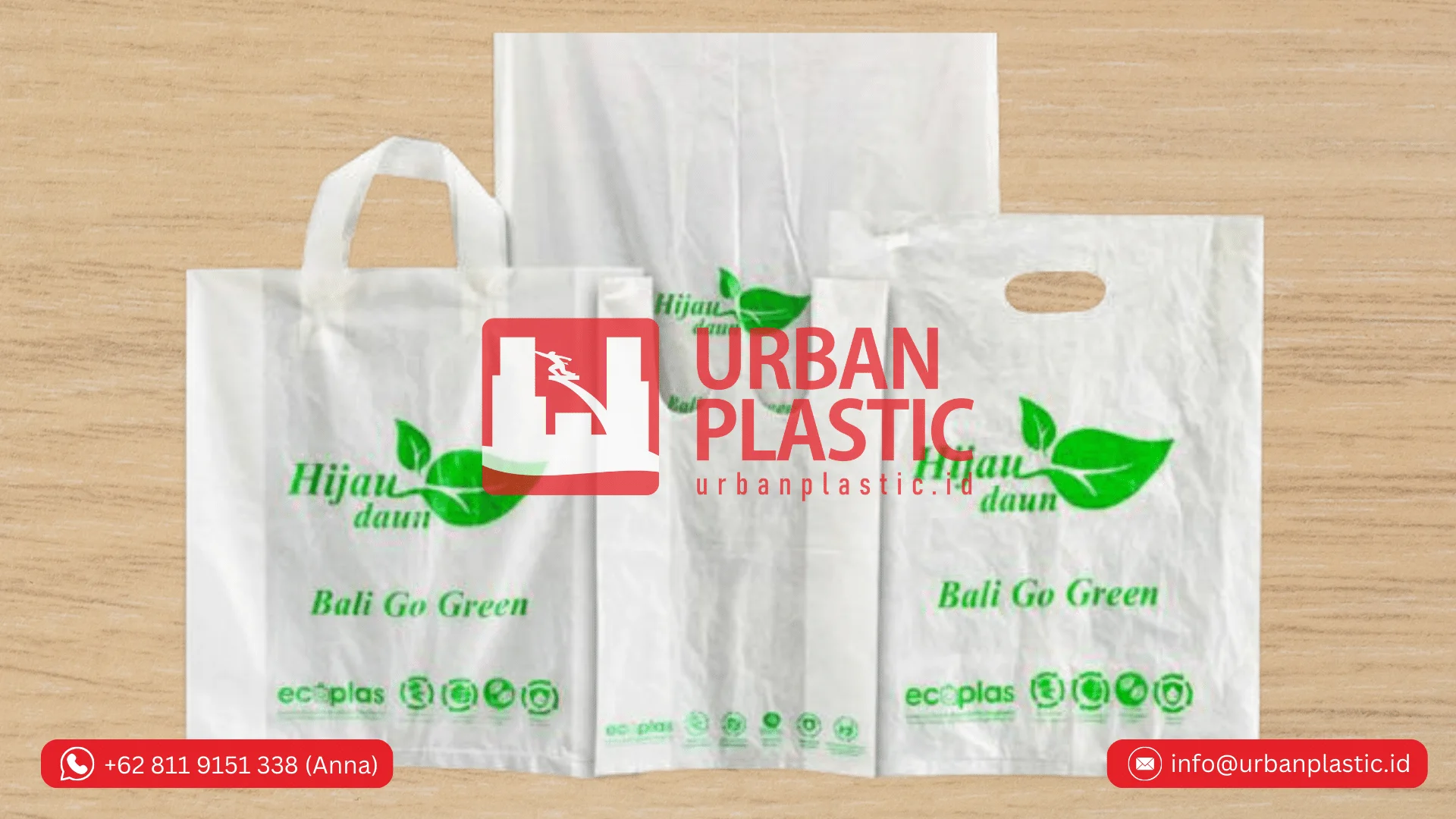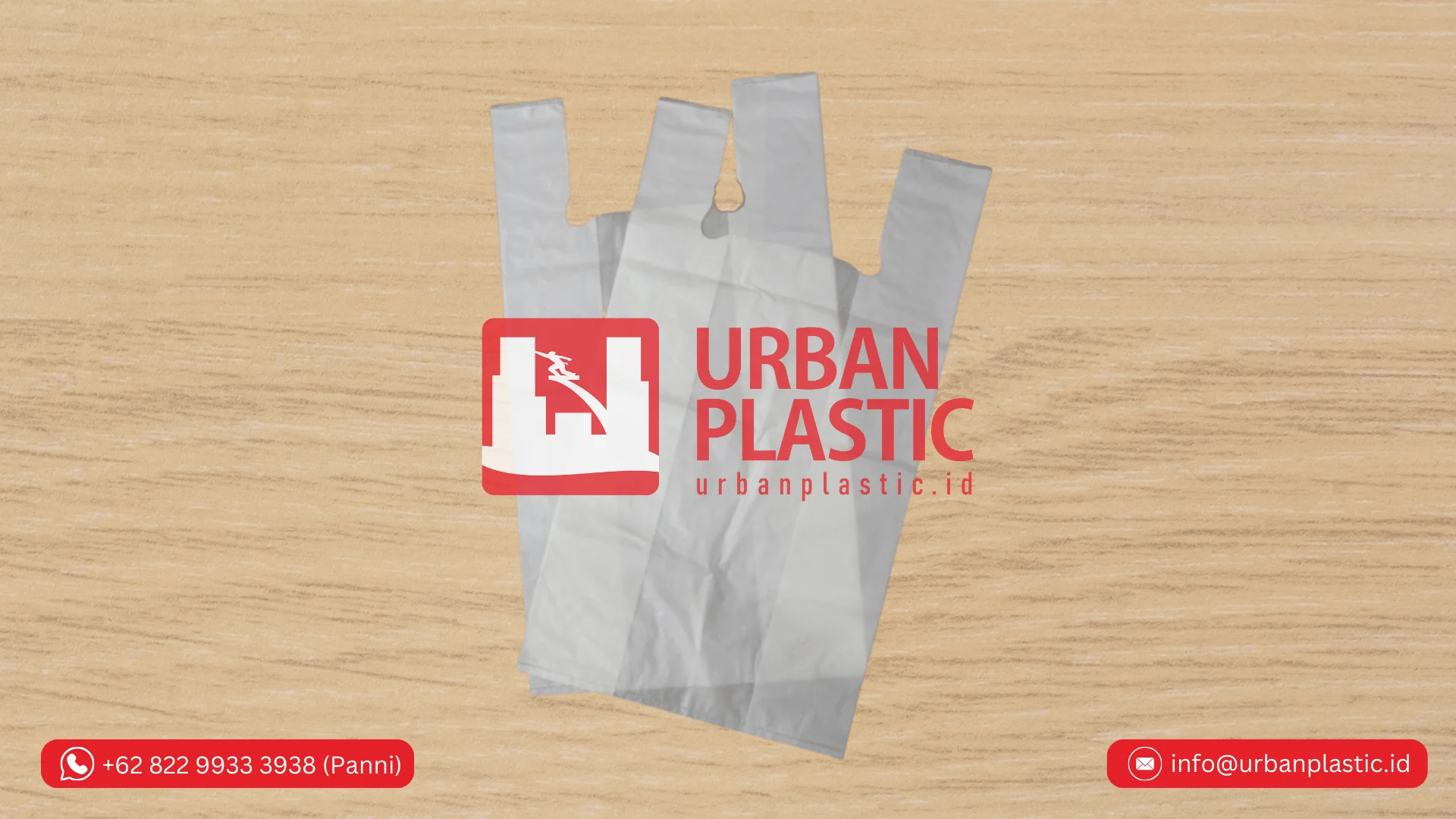In Indonesia, a sustainable revolution is taking place in the manufacturing industry with the rise of cassava bag factories. These eco-friendly facilities utilize the versatile and locally abundant cassava plant to produce biodegradable bags, addressing the urgent need to reduce plastic waste.
Did you know that Indonesia is leading the way in sustainable manufacturing? The cassava bag factories popping up across the country are revolutionizing the industry. These eco-conscious facilities harness the power of the abundant cassava plant to curtail plastic waste. Biodegradable and versatile, cassava bags make a significant impact when it comes to reducing our environmental footprint.
Welcome to the sustainable revolution in Indonesia! With the rise of cassava bag factories, the nation is changing the game in manufacturing. These innovative facilities are using the versatile and locally abundant cassava plant to produce biodegradable bags, offering a solution to the global plastic waste crisis. By embracing eco-friendly practices, Indonesia is setting an example for the world. Let’s delve deeper into this exciting shift and explore how the cassava bag factory revolution is making a positive impact on our planet.


The Environmental Impact of Traditional Plastic Bags
Plastic bags have become a staple in our daily lives, but their environmental impact is undeniable. These non-biodegradable products take centuries to decompose, clogging our landfills and polluting our oceans. The production of plastic bags also contributes to greenhouse gas emissions and depletes fossil fuel resources. It’s clear that an alternative solution is needed to combat this growing problem.
The Rise of the Sustainable Cassava Bag Industry
Enter the sustainable cassava bag industry. Indonesia, with its vast cassava plantations, has positioned itself as a leader in this eco-friendly manufacturing sector. Cassava bags are made from the starch extracted from cassava roots, a crop that is easily grown and harvested in the country. By utilizing this locally abundant resource, cassava bag factories are able to produce biodegradable bags on a large scale, providing a sustainable alternative to traditional plastic bags.
The benefits of Cassava Bags
Cassava bags offer a range of benefits that make them a superior choice to traditional plastic bags. Firstly, they are 100% biodegradable, meaning they break down naturally in the environment without leaving harmful residues. This eliminates the long-lasting impact that plastic bags have on ecosystems. Secondly, cassava bags are strong and durable, making them a reliable option for carrying groceries and other items. They can withstand heavy loads without tearing or breaking, providing a sustainable solution without compromising functionality. Lastly, cassava bags are compostable, meaning they can be added to compost piles and turned into nutrient-rich soil. This further reduces waste and contributes to a circular economy.
The process of making Cassava Bags
Producing cassava bags involves a series of steps that transform cassava starch into a usable material for bag production. The process begins with the extraction of starch from cassava roots. The roots are washed, grated, and then fermented to remove impurities. Once the starch is extracted, it is mixed with water to form a thick paste, which is then spread onto a flat surface and left to dry. After drying, the cassava starch forms a thin, flexible film that is cut into desired bag shapes. These shapes are then heated and sealed to create strong, durable bags that are ready for use.
Case studies of successful Cassava Bag Factories in Indonesia
Indonesia is home to several successful cassava bag factories that have made a significant impact in reducing plastic waste. One such factory is located in Central Java and has implemented innovative techniques to streamline production and ensure quality control. By utilizing advanced machinery and employing skilled workers, this factory has managed to produce cassava bags at a large scale, meeting both local and international demand. Another notable example is a factory in Bali that has partnered with local farmers to source cassava roots directly from their plantations. This collaboration not only supports the local economy but also ensures a steady supply of raw materials for bag production.
Challenges and opportunities in the Cassava Bag Industry
While the cassava bag industry in Indonesia is growing rapidly, it is not without its challenges. One of the main obstacles faced by cassava bag factories is the need for consistent and reliable access to cassava roots. Weather conditions, pests, and diseases can affect cassava yields, leading to fluctuations in the availability of raw materials. Additionally, there is a need for continued research and development to improve the production process and create even more sustainable alternatives. However, these challenges also present opportunities for innovation and collaboration within the industry.
The future of sustainable Cassava Bags
As awareness of the environmental impact of plastic bags continues to grow, the demand for sustainable alternatives like cassava bags is expected to increase. With ongoing advancements in technology and increased investment in the cassava bag industry, it is likely that production costs will decrease, making cassava bags more accessible to consumers. Furthermore, as governments and organizations around the world implement stricter regulations on single-use plastics, the demand for biodegradable and compostable bags will rise. The future of sustainable cassava bags looks promising, with the potential to become a mainstream solution in the fight against plastic waste.
How to support the sustainable Cassava Bag revolution
There are several ways individuals and businesses can support the sustainable cassava bag revolution. Firstly, choosing to use cassava bags instead of traditional plastic bags is a simple yet effective step towards reducing plastic waste. Supporting local cassava bag manufacturers by purchasing their products not only helps the environment but also supports the local economy. Additionally, spreading awareness about the benefits of cassava bags and encouraging others to make the switch can have a significant impact in creating a more sustainable future. Finally, advocating for government policies and regulations that promote the use of biodegradable and compostable bags can further accelerate the adoption of cassava bags on a larger scale.
The rise of cassava bag factories in Indonesia represents a sustainable revolution in the manufacturing industry. These eco-friendly facilities are harnessing the power of the versatile and locally abundant cassava plant to produce biodegradable bags, offering a solution to the global plastic waste crisis. With their numerous benefits and potential for scalability, cassava bags are paving the way for a more sustainable future. By supporting the sustainable cassava bag revolution, we can all play a part in reducing plastic waste and protecting our planet for future generations. Let’s embrace this innovative shift and make a positive impact on our environment.
For more information about cassava bag please contact: Whatsapp/Mobile Phone: +62 811 1721 338 (Ms. Ais) or Email : [email protected].

